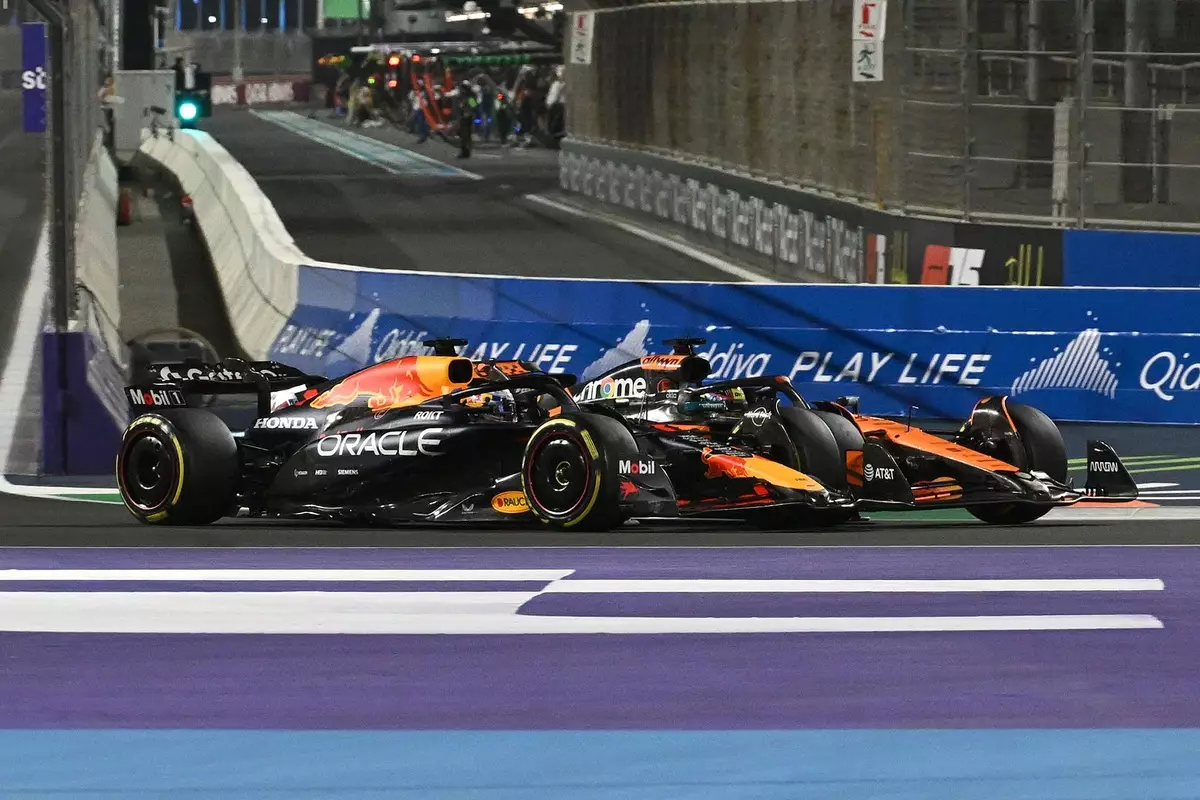The recent Formula 1 Saudi Arabian Grand Prix brought to light a contentious decision involving Red Bull Racing and their star driver Max Verstappen. It’s not uncommon for racing decisions to stir up debates, but this particular incident stands out for its potential implications on competitive integrity in the sport. The backdrop of this race featured Verstappen starting from pole position but finding himself embroiled in a fierce battle against McLaren’s Oscar Piastri. During the initial stages of the race, Verstappen left the track and was subsequently deemed to have gained an unfair advantage, resulting in a five-second penalty that he served at his pit stop.
The initial reaction from the Red Bull team was one of incredulity. They believed that Verstappen had been pushed off the track and that he should not have had to concede the position back to Piastri. This perspective highlights an essential aspect of racing strategy—how drivers interpret and react to on-track incidents. However, the FIA (Fédération Internationale de l’Automobile) stewards took a harder stance, affirming that Verstappen had indeed gained an advantage by leaving the track. This oversight was particularly frustrating for Red Bull, as influential figures like team principal Christian Horner engaged in a visible defense of their position, presenting onboard footage aimed at supporting their case.
The Rationale Behind Red Bull’s Withdrawal
What stands out in this scenario is Red Bull’s decision not to pursue a right-of-review petition following the penalty. In a sport where every millisecond counts, it may seem puzzling for a top-tier team like Red Bull to step back without a fight. Horner’s comments encapsulated their frustration while acknowledging the likely futility of an appeal, suggesting a preemptive understanding of the stewards’ likely steadfastness: “They think it was a slam dunk.”
This sentiment raises questions about the efficacy of the review process itself. If teams are deterred from pursuing appeals because they anticipate a rejection based on previous decisions, does this not create a chilling effect on the sport’s willingness to adapt and reassess? Verstappen and his team’s decision to not pursue further action could be interpreted as an acceptance of the flawed system that governs racing—one that is less flexible than the dynamic nature of the sport itself.
The Broader Implications for Formula 1
This incident extends beyond Verstappen and Red Bull; it underscores an inherent issue in Formula 1’s judicial system. The Formula 1 rules and the stewards’ interpretation of them can sometimes appear arbitrary, shaped by an ingrained bias towards conventional decisions rather than an unbiased review of the circumstances. As the sport evolves, laying down a more transparent and adaptable framework for handling such penalties should be a top priority.
Consider how this situation affects not only the competitors but also the spectators. Formula 1 has historically prided itself on being a leader in sports entertainment, yet incidents like these raise concerns about fairness and transparency. As fan engagement continues to grow, the sport must consider whether its framework allows for the most thrilling, yet fair, form of competition. A lack of consistency in decision-making can deter fans, creating a disconnect between what they observe on the track and how it translates into adjudications off the track.
Rich Circuits and Stifled Opportunities
Moreover, the fallout from Verstappen’s penalty stands as a stark reminder of how a single decision can alter the trajectory of a championship season. With intense rivalries already established, the impact of one five-second penalty reverberates throughout the racing community. The opportunity for teams to voice grievances and seek fair outcomes must be improved if the integrity of the competition is to prevail.
When the stakes are this high, it paves the way for a stronger dialogue among teams, the FIA, and fans alike. The ability to challenge decisions not only enhances the competitive spirit but also fosters a more inclusive environment where errors are acknowledged and corrected rather than swept under the rug. The refusal to contest a penalty can give an impression of resignation and can reflect poorly on teams aiming for excellence in every aspect.
Red Bull’s closure on the right-of-review for Verstappen’s penalty is representative of deeper issues within the governance of Formula 1 racing. While the incident may have seemed trivial to some, it opens a larger discussion about sportsmanship, competitive fairness, and the need for a reformative approach to decision-making in motorsport. Every decision counts, and each serves as a defining moment that not only influences rankings but also shapes the narrative of a sport steeped in tradition and competition.


Leave a Reply